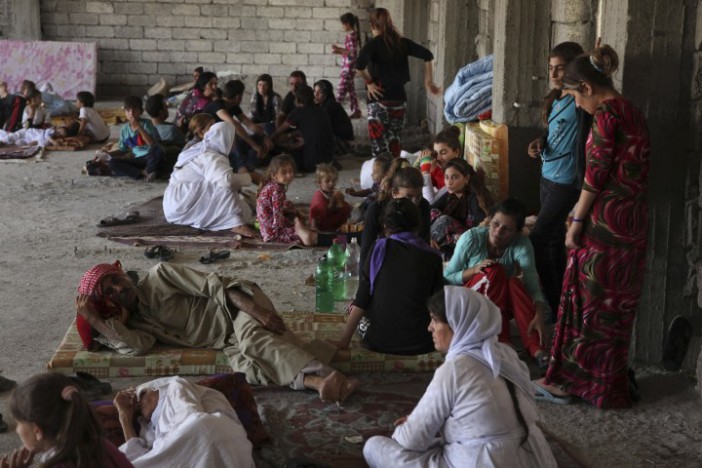The United States has deployed a further 130 military advisers to the Iraqi region of Kurdistan, in a bid to assess an escalating crisis near the Northern town of Sinjar. Thousands of Iraqi Yazidis have been forced to flea to Sinjar Mountain, after the town was overrun by rebels from the Islamic State.
The USA has launched a number of air strikes in recent days, in a bid to curb advances made by the Islamic State, who have been on an intensive campaign to expand its self proclaimed ‘caliphate’, in Northern Iraq and Syria. The USA and its allies have also been working with Kurdish military, to devise a plan to safely evacuate the remaining Yazidis from Sinjar Mountain.
Discussing the conflict on VOC Drivetime, South African born historian Prof. Rashid Begg said the disintegration of the state of Iraq was as a result of its failed federal system of people being “lumped together”.
Begg is the currently the dean of the School of Social Sciences at the University of Kurdistan Hewlêr, Iraq. His academic interests include sociology of religion, history, economics and historical-sociological methodology.
He said the attempts to bring about a more democratic system was causing havoc, particularly in the troubled Kurdish region, which was made up of hundreds of different ethnic tribes. He suggested it would be almost impossible to create a sense of nationalism overnight, amongst a people who had never been exposed to the idea of democracy.
“I don’t think the British were successful in their attempts to create a sense of Iraqi nationalism. They failed in the Kurdish region, and eventually they just lumped it together with Mosel and Baghdad and called it Iraq,” he said.
Saudi Arabia has come under particularly heavy criticism for its role in the region, with numerous allegations suggesting that the Islamic State was receiving massive funding from high ranking individuals within the Kingdom.
Whilst he refused to entertain an issue he described as pure conspiracy, Begg noted that much of the Kingdom’s finances and oil wealth since 1970’s had gone towards “patron military support”.
“Up until today, a huge percentage of their GDP is spent on military purchases. Between 35% and 40% of their income is spent on the military, and the patron that gets most of it is the United States,” he said.
Begg highlighted the divide between Saudi Arabia and the other Middle Eastern countries, pointing out that their identity was contrastingly different from countries like Iraq. He noted their refusal to entertain the idea of a ‘pan-Arab state’, as a major contributor to their alienation from other countries in the region.
“There are various stages in history during the 20th century, where Saudi Arabia is constantly moving in an opposite direction to the other regional powers,” he said.
Begg suggested another aspect of the crisis was the religious narrative, between the Sunni, Shia, and Wahabi Muslims. He noted the Shia community, were seen by both the Sunnis and Wahabis as a rank outside of what was correct under the umbrella of Islam.
“You have Wahabism on the one end, you have Shia Islam on the other end, and you have Sunni Islam sort of in between,” he explained.
The United Nations has reported that as of Sunday, between 15 000 – 20 000 refugees have so far escaped from the conflict stricken region. VOC (Mubeen Banderker)






 WhatsApp us
WhatsApp us 

